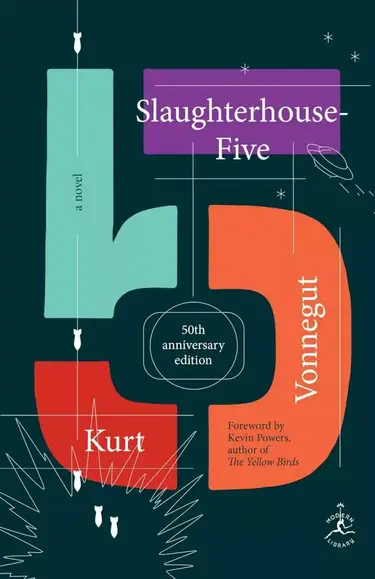Slaughterhouse 5

Vonnegut structures the novel in a non-linear fashion. Billy's experiences during the war, particularly the firebombing of Dresden, Germany, serve as a central focus. Vonnegut himself was a survivor of the Dresden bombing, and the novel draws from his own experiences.
As Slaughterhouse 5 unfolds, Billy's time-traveling adventures take him from war to a simpler life: husband, father, and optometrist. They also take him to his imagined future encounters with an alien race called the Tralfamadorians. The Tralfamadorians perceive time as a simultaneous continuum. They teach Billy their philosophy of accepting the inevitability of events and the futility of trying to change them.
Through Billy's fragmented narrative, Vonnegut explores themes of war, trauma, free will, and the illusion of control. He challenges traditional notions of linear storytelling and questions the reliability of memory. The novel challenges our ability to comprehend the horrors of war.
Slaughterhouse 5 also delves into the nature of humanity and the absurdity of war. It presents a satirical and darkly humorous critique of the destructive forces that shape human history. Vonnegut's writing style combines sharp social commentary with moments of gallows humor, creating a unique blend of satire and introspection.